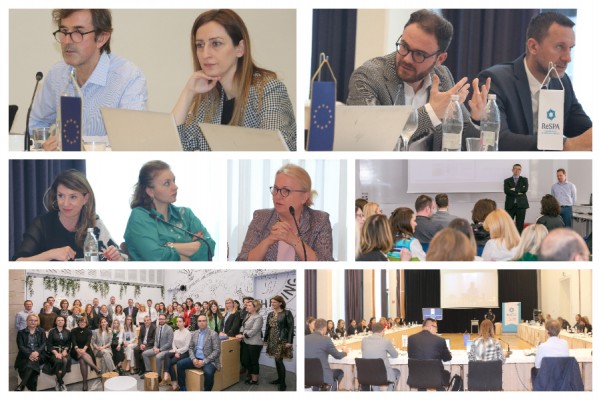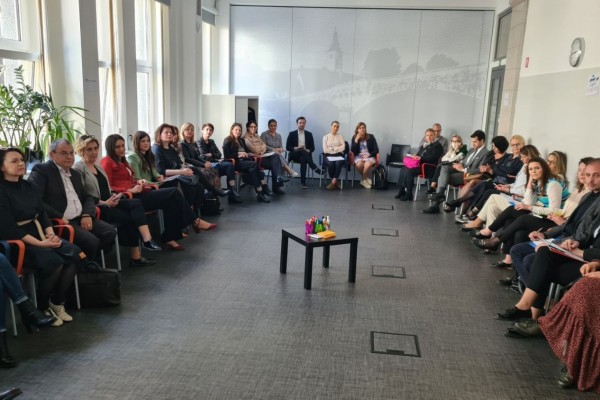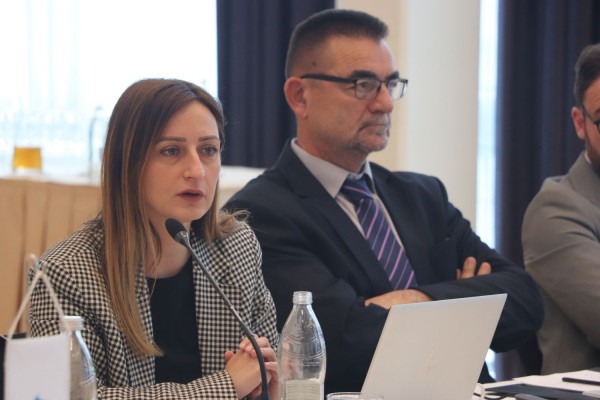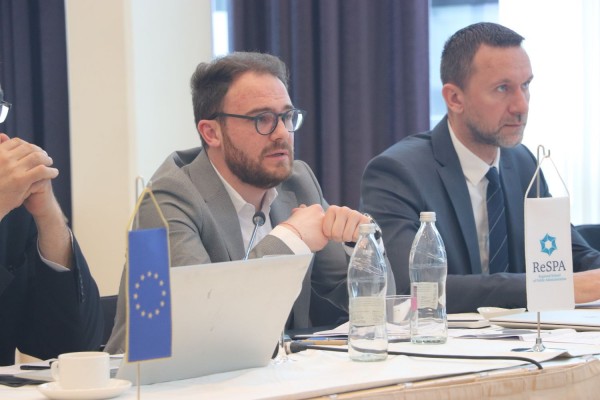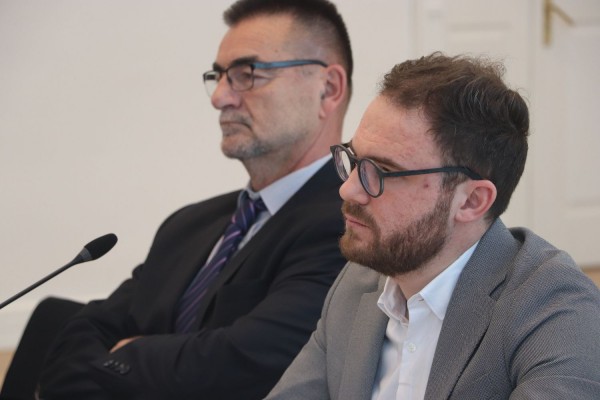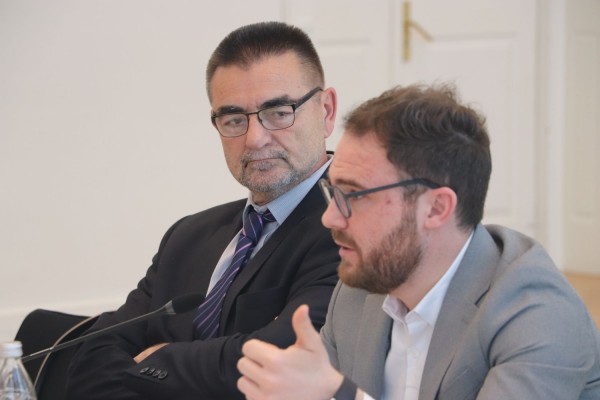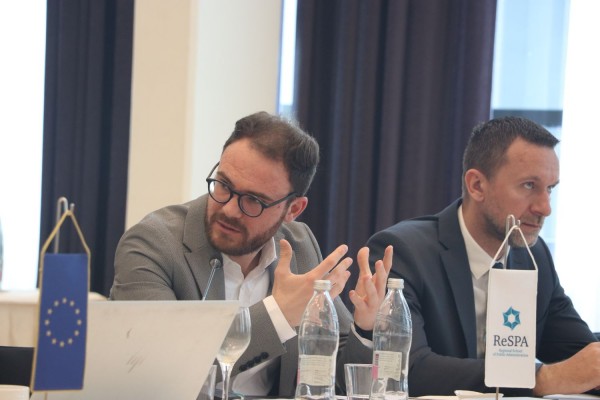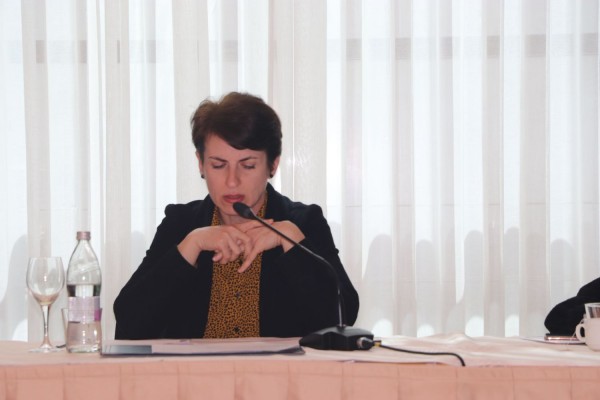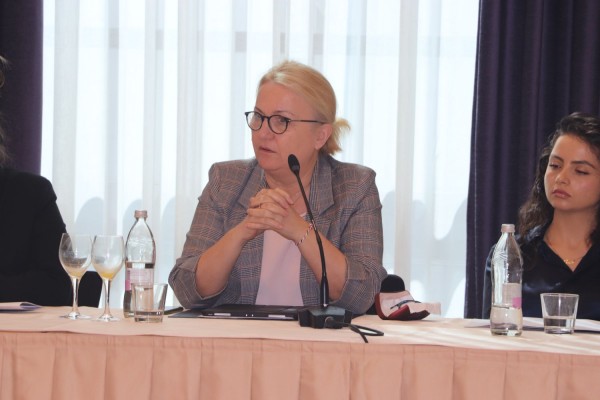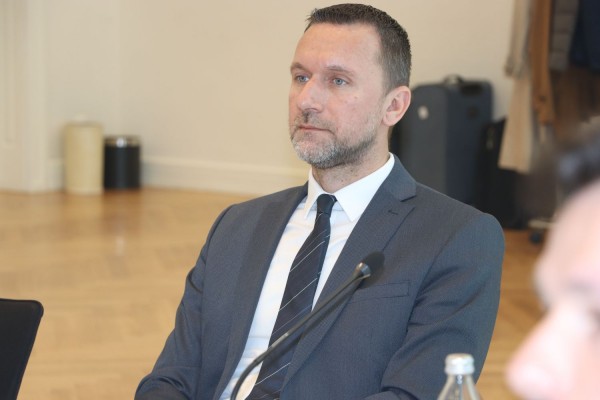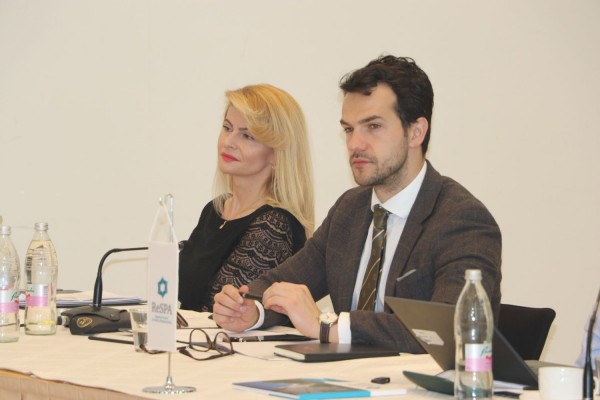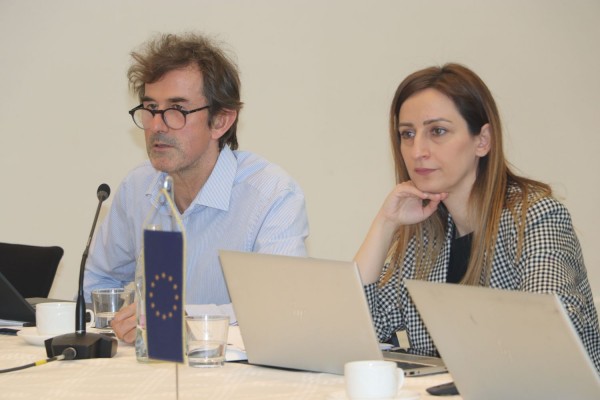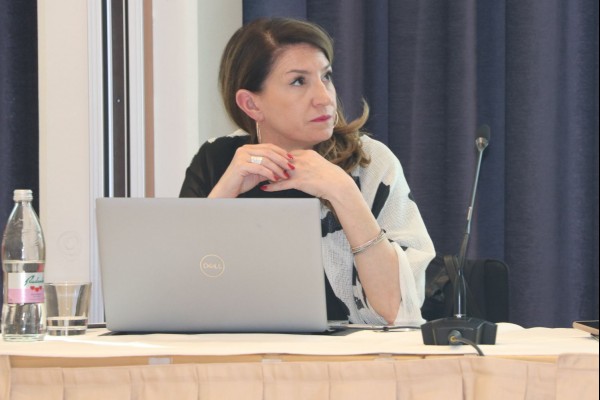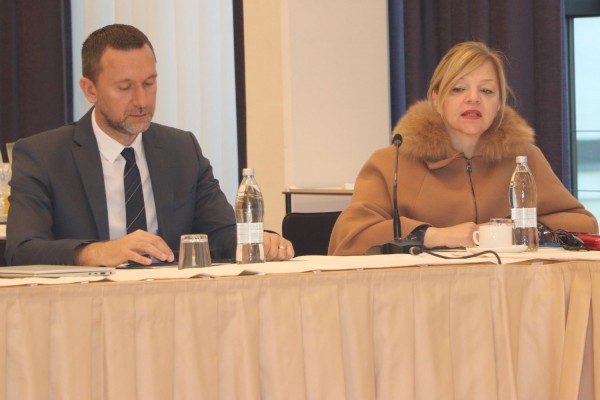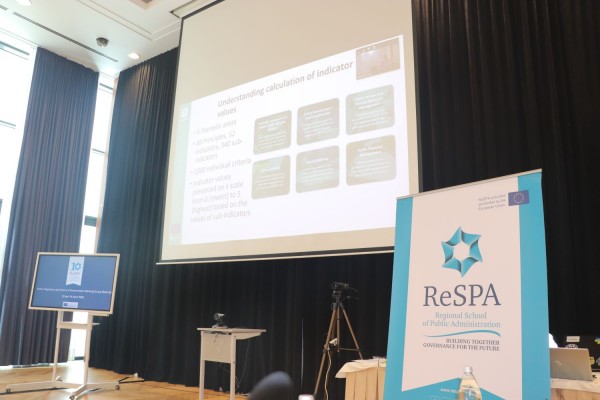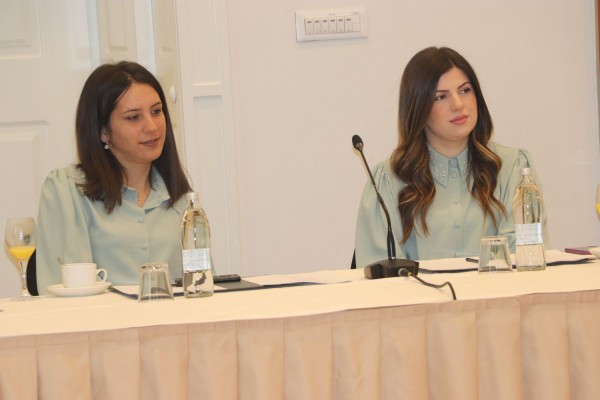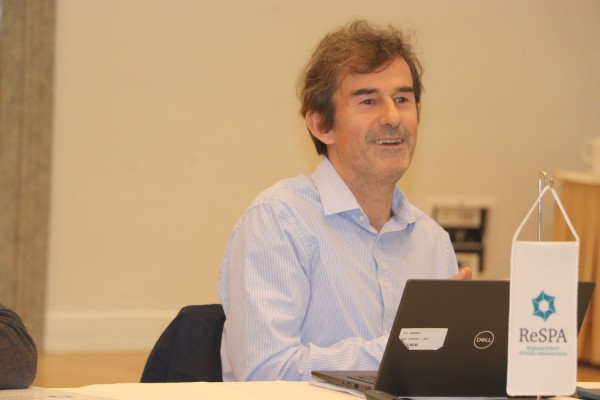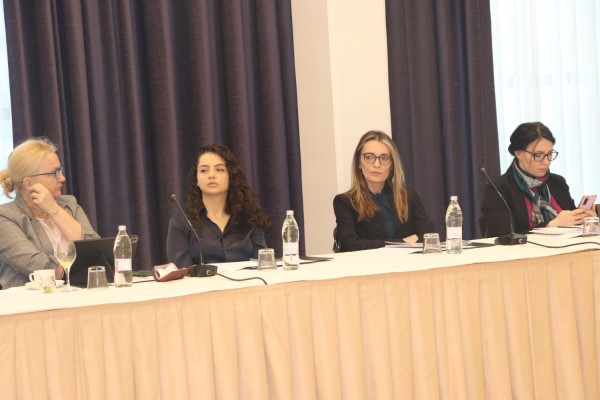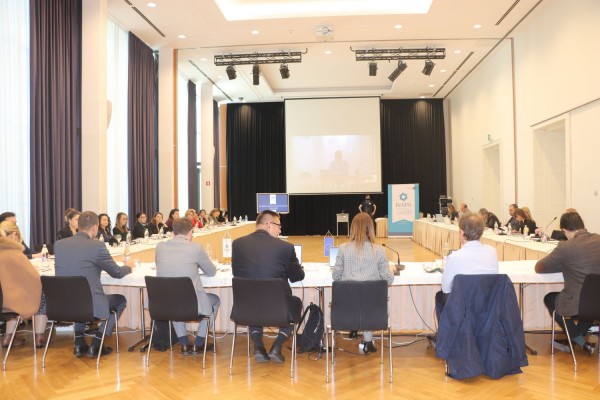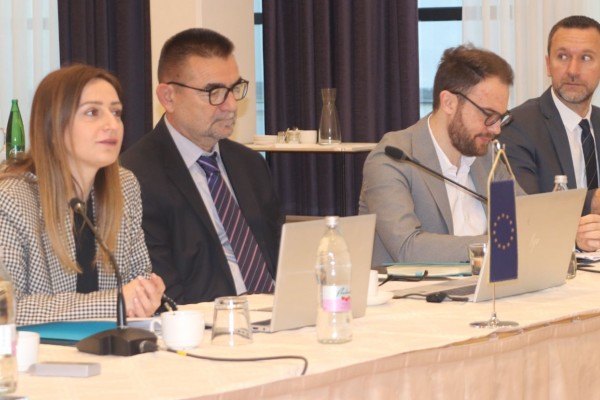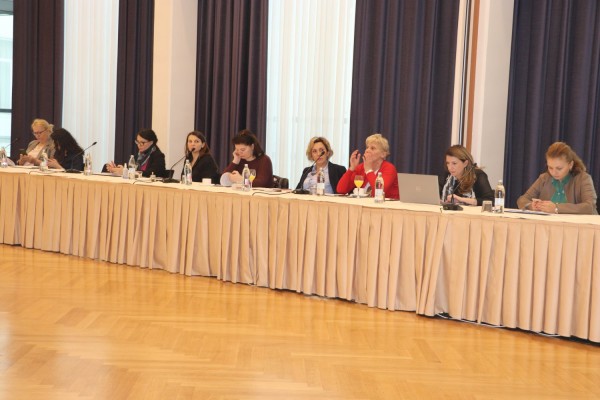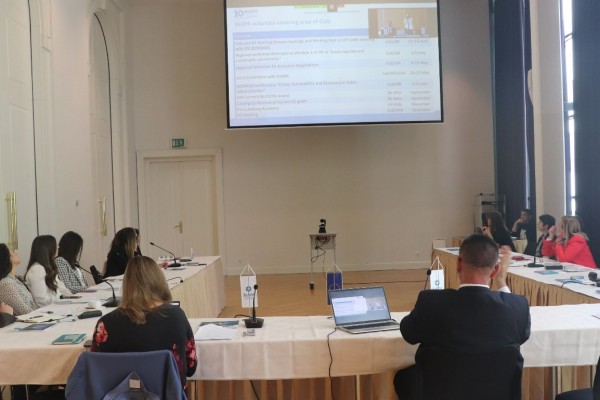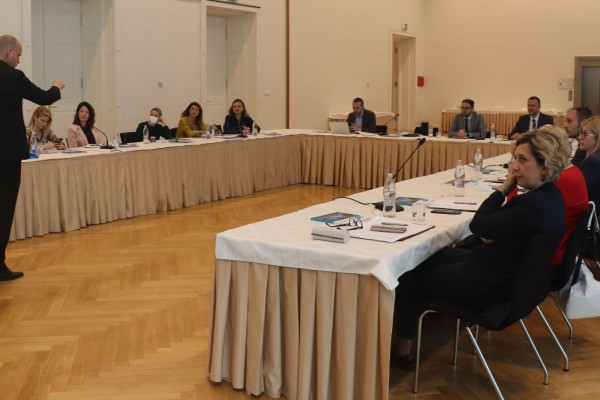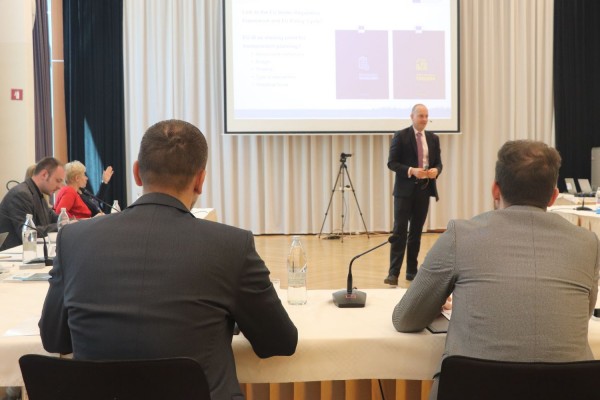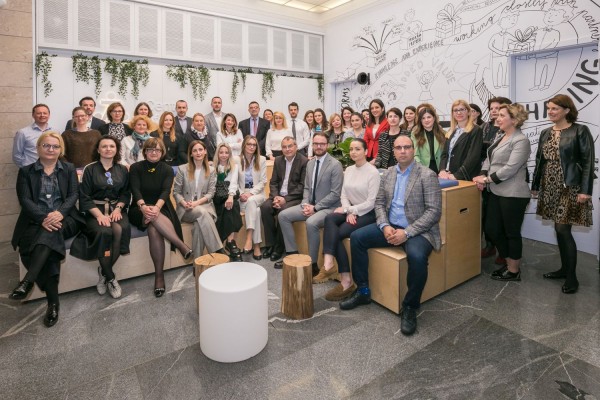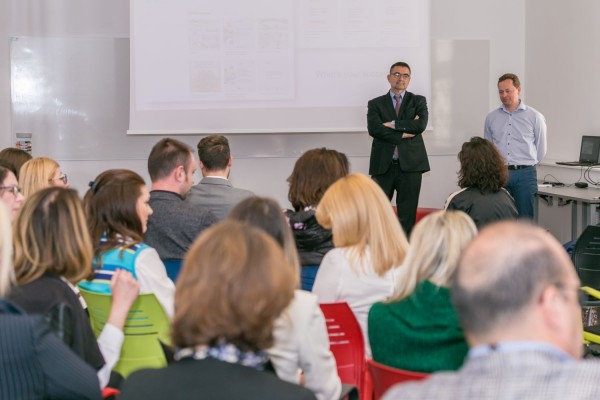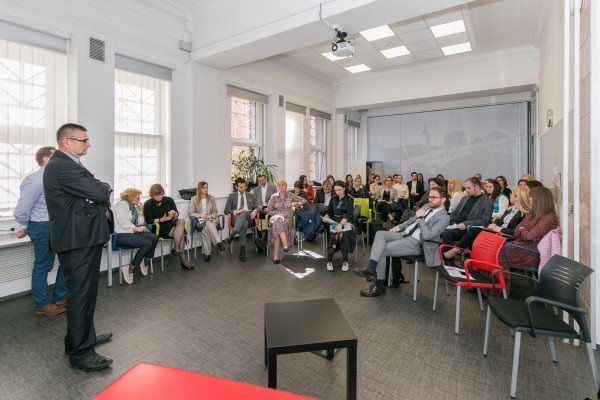
Centre of Government and Better Regulation WG meetings: new insights on structural changes of the governments, RIA implementation, EU law transposition and policy coordination improvement.
12, 13, 14 April 2022, Ljubljana, Slovenia
Working groups members of the Centre of Governments (CoG) and Better Regulation (BR), composed of senior managers and civil servants of CoG and BR units from the relevant institutions of ReSPA Members, spent three days actively working on analysing and debating different aspects related to structural changes of the governments, RIA implementation and EU law transposition. They also had the opportunity to meet, network, and exchange practices with the Centre of Excellence in Finance (CEF) experts on various matters related to the reform agenda in the Region. Furthermore, a dedicated meeting was organised with representatives of OECD/SIGMA where civil servants were introduced to the findings of the SIGMA monitoring reports, identifying "red flags" aiming to address them in the short future through the support of ReSPA and other regional/local initiatives.
DAY I
During the first day, two working groups worked in parallel.
At the Centre for Government WG meeting, Marko Savić, a ReSPA expert, presented the vision of the ReSPA Academy on the Evidence-based policymaking process.
Erik Akse, a ReSPA expert, presented and led a practical discussion on RIA systems and EU Law transposition in the Western Balkans at the Better Regulation Working Group meeting. "With the current situation of all the countries as the starting point, the debate covered many ideas about how to improve RIA systems and better transpose further and implement the EU Acquis. The two processes have so much potential to strengthen each other and need to be interlinked better. ReSPA once more organised an excellent discussion and exchange of views on these important topics.", said Ms Akse.
Elida Reci from the United Nations introduced to WG members how the implementation of Sustainable Development Goals (SDGs) contributes to improving policy coordination in the context of the 2030 Agenda in the WB. It was emphasised that Public Administration Reform is fundamental to achieving the targets of the SGDs.
DAY II
The second day was devoted to a working visit to the Centre of Excellence in Finance, where regional cooperation and a bottom-up approach to improving the business environment through better and regular stakeholder consultations were discussed.
CEF representatives presented their approach to training in the Policy drafting and negotiations, which was an opportunity for sharing experiences and ideas on further improvements with ReSPA BR WG members to increase the effectiveness of Public Institutions through Learning and Knowledge Sharing.
Public servants from ReSPA Members actively engaged during the various sessions of the working visit, bringing forward the experiences from their home administrations with an emphasis to further learn from each other and from CEF experts.
DAY III
The last day of the meeting was devoted to presenting the findings of the OECD/SIGMA Monitoring Report 2021 on the Strategic Framework of PAR and Policy Development and Coordination.
Both working groups actively discussed the state of play in their respective countries. They had the opportunity to brainstorm with SIGMA experts on various aspects of policy coordination and the development of thematic areas.
Ms Biljana Nikolovska Žagar, a member of the Centre of Governments working group, thanked the OECD/SIGMA for excellent collaboration regarding monitoring in the strategic framework of PAR. "North Macedonia is the only country in the Western Balkans that showed a positive trend in the Strategic framework of PAR due to our strong commitment to PAR", highlighted Žagar.
The participants also discussed collaboration with NGOs in policymaking, precisely to which extent to be involved in the public consultation process.
In the end, Genti Xhaxhiu, ReSPA Programme Manager, concluded by congratulating the administrations' representatives for the improvements that have happened as of the last SIGMA assessment (2017). He also emphasised that the recommendations and findings provide a clear course of action for the administrations themselves, for ReSPA, and for the donor community to streamline their efforts and programmatic support to further reforming public administration, as one of the fundamental pillars of EU accession process.



